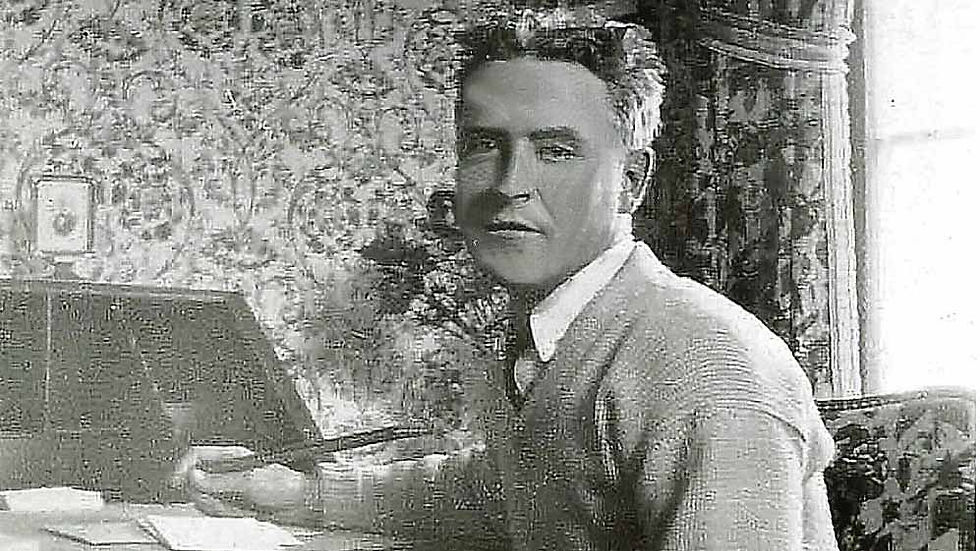Bad History Matters
- Marc Johnson

- Jul 30, 2012
- 3 min read
David Barton’s book “The Jefferson Lies” is a New York Times bestseller. It was also recently voted “the least credible history book in print.” The book has been widely panned by real historians, but still it sells and sells.
David Maraniss, an Associate Editor of The Washington Post, is just out with a completely sourced, deeply researched reporting job called “Barack Obama: The Story.” Maraniss, a Pulitzer winner for his reporting on Bill Clinton, has written a shelf full of fine books on Clinton, Al Gore, Roberto Clemente and Vince Lombardi, among other subjects. He’s a pro and turning to the footnotes in his books tells you all you need to know about how seriously he takes the research that is the super structure of his reporting.
Yet, Maraniss’ book, well-reviewed and critically praised, hasn’t broken through as a big seller. For that book on Obama you’ll need to turn to Edward Klein’s book “The Amateur,” which has been on the Times bestseller lists for weeks despite the fact that is based on anonymous sources and little real reporting.
Klein’s highly-critical polemic about the President is nevertheless outselling Maraniss’ even-handed, yet critical biography. Actually, outselling is an understatement. Klein’s book has sold 137,000 copies and the Maraniss book has sold 19,000.
Garbage sells seems to be the lesson.
Part of the explanation for the sales success of Klein’s Obama book is the still apparently widespread notion that major elements of the President’s life – his religion and his birth, for example – are phony, made up, invented. Maraniss picks through his pile of conspiracy and myth making and concludes that the real frauds and fabricators are those, like Klein, who keep repeating the lies, inventing new ones and passing it off as history.
Same goes with Barton’s book about Jefferson in which he concocts the story that Jefferson’s real beliefs about God and the place of religion in our public life have somehow been hidden all these years. Rather than believing in a strict separation of religion and government, Barton would have us believe Jefferson was really “an Orthodox Christian.”
As distinguished religion scholar Dr. Martin Marty points out a “real” historian of the American founding, Gordon Wood, had this to say about Jefferson: “It’s easy to believe in the separation of church and state when one has nothing but scorn for all organized religion. That was the position of Thomas Jefferson. Jefferson’s hatred of the clergy and established churches knew no bounds. He thought that members of the ‘priestcraft’ were always in alliance with despots against liberty. For him the divine Trinity “was nothing but ‘Abracadabra’ and ‘hocus-pocus’. . . Ridicule, he said, was the only weapon to be used against it.”
Barton and Klein write what they pass off as history in order to advance a cause and, of course, to sell books with the help of Glenn Beck and others with a political or religious agenda. It’s a free country and we do have a First Amendment after all, but what they do is not history and to pass it off as such is also a fraud.
One of the great and pressing problems with our politics is the inability of too many people to agree on even the most fundamental facts. How can we fix out-of-control federal spending unless we agree on what is causing it? Is it some of the lowest real tax rates in history? Or runaway spending on entitlements? Or both?
Is climate change real? Is the Earth warming and, if so, has man contributed? What to do?
The beginning of solving problems is to agree on at least a few fundamental facts. Silly books that pretend to report history don’t help, nor do book sellers like Barnes and Noble and Amazon who treat phony history like we should really take it seriously.
Next time you’re browsing for a new read check out the cover, of course, but then turn to the back before you buy. Has the author really sourced the book? Do the footnotes, if there are any, pass the smell test? Is there a bibliography, meaning that the author consulted other books on his subject? Are sources named? Does the writer have an obvious agenda?
If you want to read fiction, you should, but don’t fall for fiction that passes itself off as history. There is too much good and important history being written to let the frauds and fabricators make all the sales.






Comments